
-
 In a Democratic presidential primary debate in Miami on March 10, against his rival Hillary Clinton, Bernie Sanders opposed US invasions, coups and interventions against Latin American nations. The socialist Senator also strongly opposed the ongoing US embargo against Cuba while praising the island for its social gains in health and education.
In a Democratic presidential primary debate in Miami on March 10, against his rival Hillary Clinton, Bernie Sanders opposed US invasions, coups and interventions against Latin American nations. The socialist Senator also strongly opposed the ongoing US embargo against Cuba while praising the island for its social gains in health and education. -
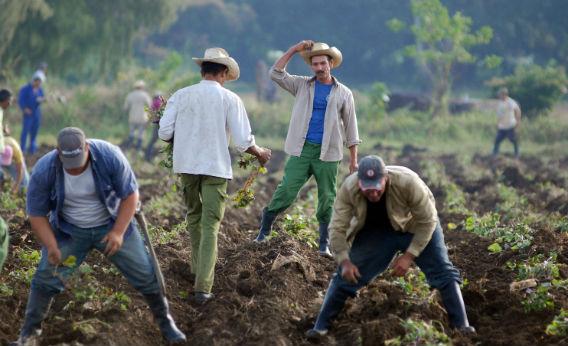 Cuban farmers planting sweet potato crop.
Cuban farmers planting sweet potato crop.
-
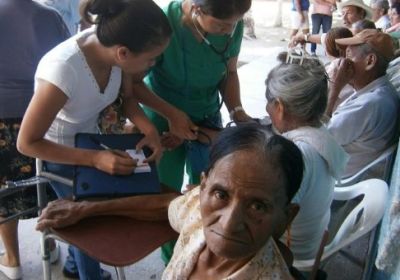
Cuban doctors have served more than 29 million Hondurans and saved at least 250,000 Honduran lives over the past 17 years, local media in the Central American nation said.
-
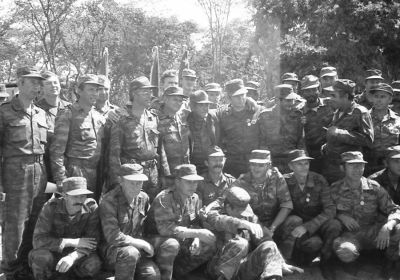 Angolan President Jose Eduardo dos Santos recognised and thanked Cuba on November 12 for its important support in achieving national independence 40 years ago. Commemorating four decades of independence from colonial powers, dos Santos invited a Cuban delegation to honour the historical events that led Fidel Castro to deploy 36,000 troops to defend Angola from a US-back military invasion by forces of apartheid South Africa.
Angolan President Jose Eduardo dos Santos recognised and thanked Cuba on November 12 for its important support in achieving national independence 40 years ago. Commemorating four decades of independence from colonial powers, dos Santos invited a Cuban delegation to honour the historical events that led Fidel Castro to deploy 36,000 troops to defend Angola from a US-back military invasion by forces of apartheid South Africa. -
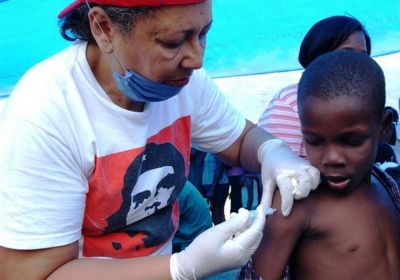
In our “A World to Win” series, Resistance: Young Socialist Alliance seeks to give voice to the ideas and demands of radical young people involved in the struggle to make the world a better place. In this week's article, Jacob Andrewartha argues for universal quality healthcare for all. * * * Article 25 of the Universal Declaration of Human Rights states: "Everyone has the right to a standard of living adequate for the health and well-being of himself and of his family, including food, clothing, housing and medical care and necessary social services”.
-
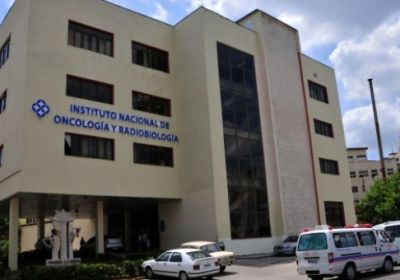 A Cuban girl is being deprived of urgently needed cancer treatment due to the United States' blockade, doctors said on October 28, TeleSUR English reported that day.
A Cuban girl is being deprived of urgently needed cancer treatment due to the United States' blockade, doctors said on October 28, TeleSUR English reported that day. -
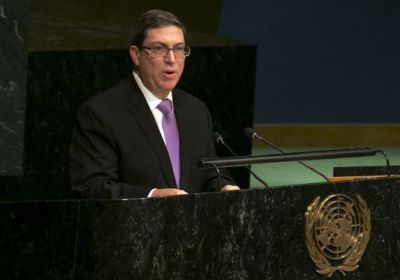 Once again, the United States and Israel voted against a motion to end economic sanctions at the United Nations General Assembly on October 27. Similar motions have been adopted by overwhelming majorities at the UN for the past 23 years. UN Secretary-General Ban Ki-moon presented a report that concludes that the economic sanctions, which have caused about US$833.8 billion in damages to the Caribbean island, should be lifted. Cuban foreign minister Bruno Rodriguez addressed the UN, calling the blockade a “flagrant, massive and systematic violation of human rights of all Cubans”.
Once again, the United States and Israel voted against a motion to end economic sanctions at the United Nations General Assembly on October 27. Similar motions have been adopted by overwhelming majorities at the UN for the past 23 years. UN Secretary-General Ban Ki-moon presented a report that concludes that the economic sanctions, which have caused about US$833.8 billion in damages to the Caribbean island, should be lifted. Cuban foreign minister Bruno Rodriguez addressed the UN, calling the blockade a “flagrant, massive and systematic violation of human rights of all Cubans”. -
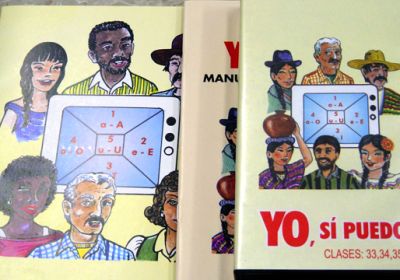 More than 10 million people have learned to read and write through a Cuban program aimed at mature age students, the Cuban government announced on October 26, TeleSUR English reported that day. The program, Yo Si Puedo (Yes I Can), aims to provide free education to adults who lacked opportunities to learn to read and write as children, with a focus on the poor.
More than 10 million people have learned to read and write through a Cuban program aimed at mature age students, the Cuban government announced on October 26, TeleSUR English reported that day. The program, Yo Si Puedo (Yes I Can), aims to provide free education to adults who lacked opportunities to learn to read and write as children, with a focus on the poor. -
 Fidel Castro, the historic leader of the Cuban Revolution, used the occasion of his 89th birthday on August 13 to pen a statement demanding US compensation for damages caused to the Caribbean island for its decades-long blockade. Reflecting on history, Castro wrote: “We will never stop fighting for peace and the wellbeing of all human beings.
Fidel Castro, the historic leader of the Cuban Revolution, used the occasion of his 89th birthday on August 13 to pen a statement demanding US compensation for damages caused to the Caribbean island for its decades-long blockade. Reflecting on history, Castro wrote: “We will never stop fighting for peace and the wellbeing of all human beings. -
 Internationally renowned US intellectual Noam Chomsky told Mexican newspaper La Jornada on July 20 that it was because Washington was becoming increasingly isolated from “their own backyard” of Latin America, that the US decided to normalise relations with Cuba. Chomsky said the fourth Summit of the Americas of 2012 in Colombia was a major turning point for the US. It saw itself, along with Canada, completely marginalised from all the crucial issues being debated — including Cuba.
Internationally renowned US intellectual Noam Chomsky told Mexican newspaper La Jornada on July 20 that it was because Washington was becoming increasingly isolated from “their own backyard” of Latin America, that the US decided to normalise relations with Cuba. Chomsky said the fourth Summit of the Americas of 2012 in Colombia was a major turning point for the US. It saw itself, along with Canada, completely marginalised from all the crucial issues being debated — including Cuba. -
 Supports of the 'no' vote celebrate in Athens on the night of July 5.
Leaders of Latin American left-wing governments have congratulated the Greek government and its people after Greece's historic July 5 referendum. Voters rejected debt austerity proposals by Greece's European lenders.
Venezuelan President Nicolas Maduro said: “The ‘no’ vote in Greece is a victory against the financial terrorism carried out by the International Monetary Fund (IMF).”
Supports of the 'no' vote celebrate in Athens on the night of July 5.
Leaders of Latin American left-wing governments have congratulated the Greek government and its people after Greece's historic July 5 referendum. Voters rejected debt austerity proposals by Greece's European lenders.
Venezuelan President Nicolas Maduro said: “The ‘no’ vote in Greece is a victory against the financial terrorism carried out by the International Monetary Fund (IMF).”
-
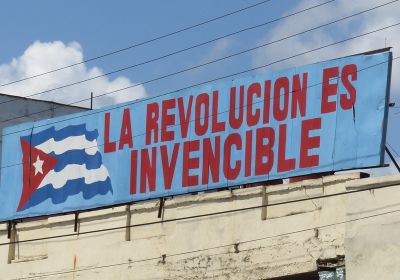
The US and Cuban governments announced on July 1 the official restoration of formal diplomatic ties by reopening embassies in each country.